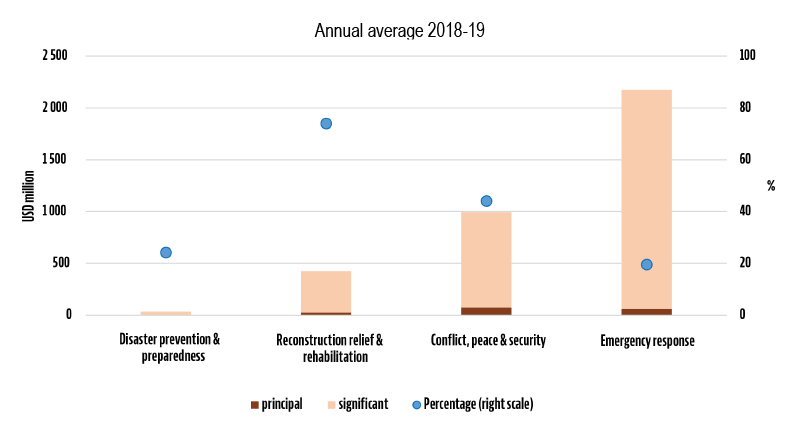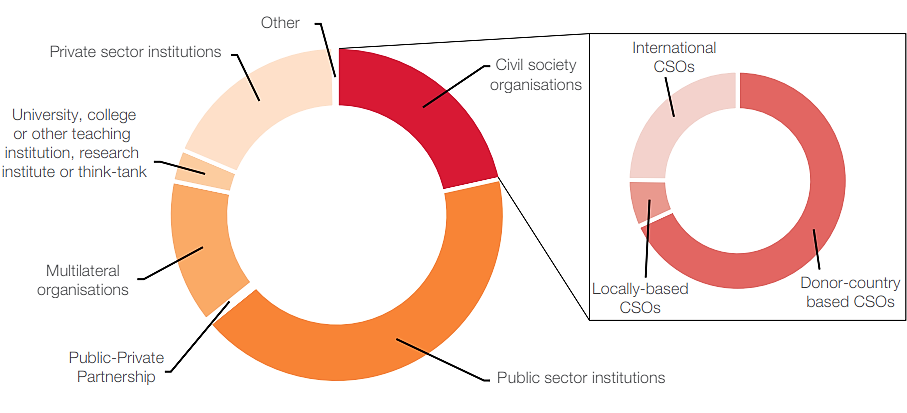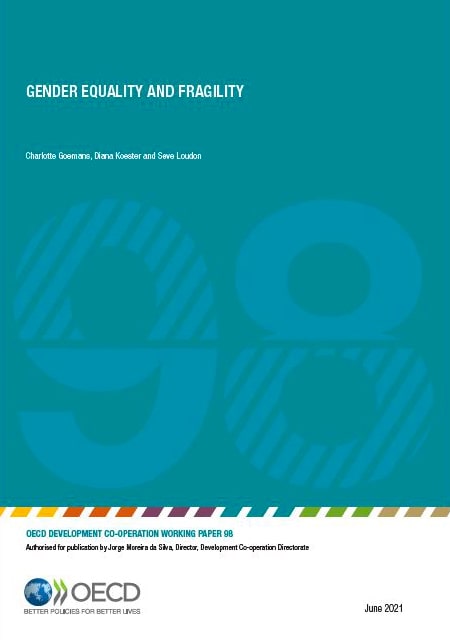Gender and development
Gender equality in fragile contexts
| Strengthening gender equality and women’s empowerment in fragile situations is critical for achieving sustainable peace and the Sustainable Development Goals (SDGs). Gender inequality, conflict and fragility are key challenges to sustainable development and they are inextricably linked: women’s active participation in conflict resolution contributes to peace and resilience, while unequal gender relations can drive conflict and violence. |
Financing gender equality and women's empowerment in fragile contextsConflict has differential and devastating consequences for women and girls. In the 57 countries and territories that are considered as “fragile” contexts by the OECD, Offical Development Assistance (ODA) is the second most important source of external finance after remittances. Development Assistance Committee (DAC) members’ aid integrating or dedicated to gender equality and women’s empowerment in fragile contexts has been steadily rising over the past 10 years, reaching USD 20.3 billion on average per year in 2018-19 (43% of aid in these contexts). However, only USD 2.3 billion was dedicated to gender equality as a principal objective, corresponding to 4.9% of aid to fragile contexts. Data on financing gender equality in fragile contexts is critical for better understanding the additional efforts needed to implement the women, peace and security agenda as well as to enhance gender equality in fragile contexts. OECD data and analysis on this topic are also featured in the annual UN Secretary General Report on Women, Peace and Security and will inform the monitoring of the Compact on Women, Peace and Security and Humanitarian Action.
|
||
Financing for gender equality in the Sahel and West AfricaThe Sahel and West Africa continue to face significant challenges in advancing towards gender equality and women’s empowerment. By mobilising support for gender equality, official development assistance (ODA) can play a crucial role in this respect. The current gender equality landscape in the region shows a need to increase the share of ODA supporting gender equality objectives and local women’s organisations as key actors in reaching the most vulnerable women and girls; the need to invest in the evaluation of gender-sensitive programmes and learning around them; and to support the generation of gender-disaggregated data to identify where action can be most effective.
Channels of delivery for ODA for gender equality, 2018-19
|
||
A tool to analyse and compare the gender-focused official development assistance in fragile contextsThe OECD States of Fragility Platform features data and visualisations on ODA to gender equality and women’s empowerment in fragile contexts. Each of the fragile context and donor profiles present a chart on the gender focus of ODA. You can click on the hyper-link (“Gender, Total”) to analyse the distribution of ODA to principal or significant objectives, as per the marker system. Read here for more detail. |
||
Gender equality across the Humanitarian-Development-Peace NexusThe Humanitarian-Development-Peace Nexus approach is based in part on the recognition that emergency needs are often symptoms of underlying issues that make people and societies vulnerable in the first place – and that a more effective international response needs to do more to address these root causes. In this regard, gender inequalities and discrimination constitute major drivers of vulnerabilities. Attention to gender is essential to the nexus approach. Women’s active societal contribution can serve as a source of resilience and increase the effectiveness of prevention efforts and sustainable peace agreements. This paper aims to contribute to the interim review of the HDP Nexus Recommendation by providing an overview of how adherents to the DAC Recommendation on the HDP nexus have taken into account a gender equality perspective in their strategies and guidance for nexus implementation. |
||
Gender equality and fragility
|
||
Read other reports
|
||
Related OECD Work
|
Related Documents


